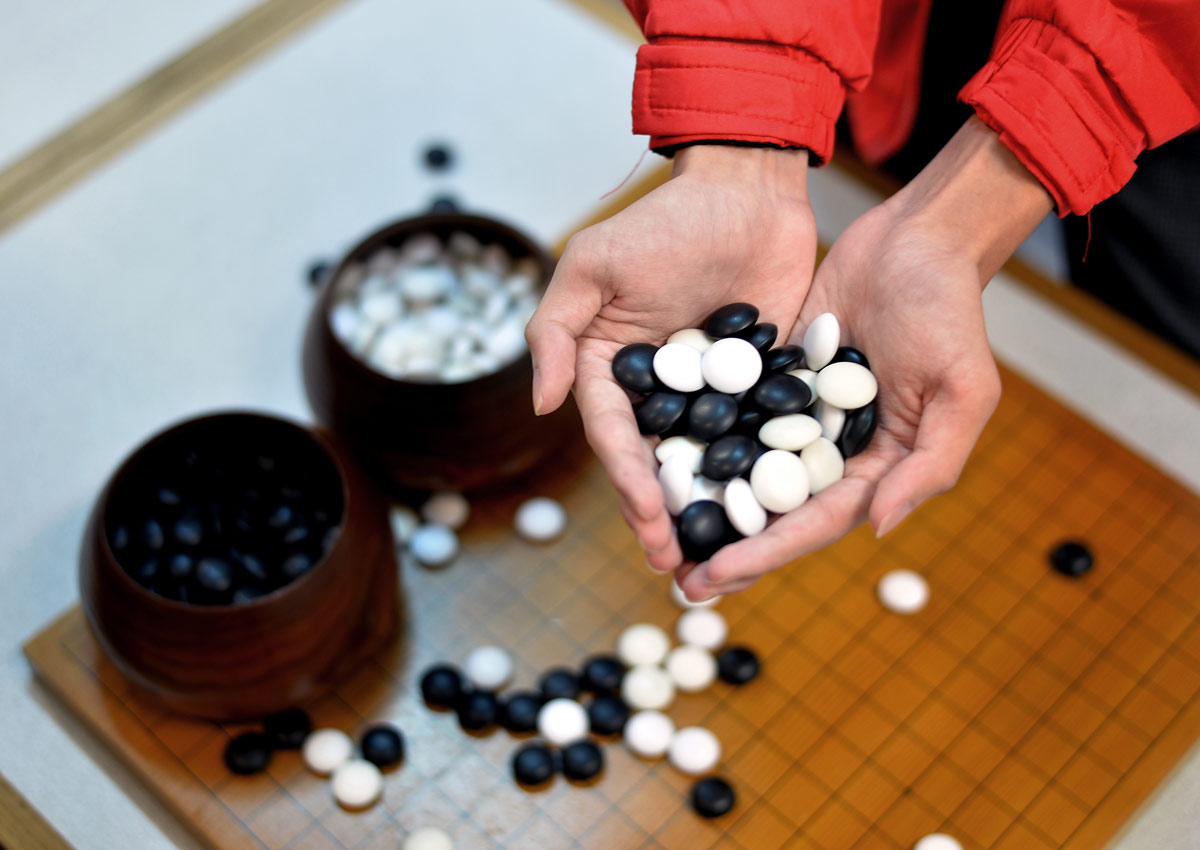Tradition and culture have underpinned the ancient Chinese game of weiqi for more than 3,000 years.
But last week, it was technology that sparked interest and piqued curiosity in a game that has seen little change since its invention.
Last Tuesday, an advanced artificial intelligence soundly defeated one of the world’s best human weiqi players, South Korea’s nine-dan player Lee Sedol, after a gruelling five-game match in Seoul.
Players of weiqi, known as Go in the Western world, are ranked using the dan system, with nine-dan being the highest rank attainable.
The historic match shocked weiqi players. In Singapore, close to 1,000 people – enthusiasts and first-timers alike – watched the live streaming of the match offered by the Singapore Weiqi Association (SWA) as Google’s AlphaGo computer programme beat Lee four games to one.
“I thought it was impossible,” says six-dan player Yang Jin Hua, 64, coach of Singapore’s national weiqi team.
“If you asked me before the match if I could defeat AlphaGo, my answer would be definitely yes. But now, I don’t think I can.”
IMPLICATIONS
As the dust settles, weiqi players in Singapore are starting to see the match’s implications.
Speaking to The New Paper on Sunday at its Bishan clubhouse, the SWA president says the association has seen an unprecedented spike in interest in a board game that used to be played only by a niche group here.
“Since AlphaGo beat Lee Sedol, we’ve received 80 per cent more inquiries from the public about weiqi,” says Mr Tan Teng Chuan.
“We’ve also had nearly 1,000 new faces turn up at our clubhouse or participate in our online activities.”
The constant calls have prompted some of its staff to claim overtime to answer queries on weiqi and the association’s classes, he adds.
Based on past sign-ups for its classes, Mr Tan estimates there are 100,000 Singaporeans who know how to play the game.
SWA is now deciding if it is able to increase its number of weiqi classes for adults.
The association conducts classes for about 3,000 players every year, including school students and adult players.
Mr Yang, who is also SWA’s head coach, says: “Playing the game regularly helps to develop intellectual, memory and critical thinking skills. It also aids in developing one’s personality.”
He stresses the importance of the game’s traditions – which include how the stones are placed on the wooden board and the respectful greetings opponents give each other before every match.
COMPETITIONS
While such traditions are absent when computer-players are involved, weiqi players learn from their defeats. Having a strong opponent in AlphaGo is a definite plus, says Mr Yang. He also believes Singapore is no slouch in the competitive arena.
In 2012, Singaporean four-dan player Kwa Jie Hui, 19, was crowned world No. 10 in the youth category of the World Mind Sports Games in Lille, France.
The event, which is held every four years, is the Olympics-equivalent for weiqi, chess, bridge, checkers and Chinese chess.
Last year, Mr Kwa placed third in a tournament in Thailand that was open to all age groups.
Mr Kwa, who is waiting to enlist into the army, says: “It’s ironic that for a game so set in its traditions, it was technology that brought it to the attention of the world.”
Mr Yang, his mentor, agrees: “In all my life, I’ve never seen such excitement over weiqi, especially in Western countries.
“I’ve spent years to hone my skills on this game. I cannot feel any more proud for weiqi right now.”
About AlphaGo v Lee Sedol
Google’s AlphaGo computer programme ended a historic match of the ancient Chinese game of weiqi against South Korea’s Lee Sedol by securing a 4-1 win last Tuesday.
The winner had earlier been determined when Lee, 33, lost the third game of the five-game match on March 12.
AlphaGo, which was developed by Google’s London-based artifical intelligence subsidiary DeepMind, received US$1 million (S$1.36 million) in prize money, which will be donated to charities.
The human weiqi champion beat the artificial intelligence in the fourth match, but Lee was defeated once again in the fifth and final match.
AlphaGo made history last year by becoming the first machine to beat a human pro player – but Lee was deemed more formidable.
“One of the most incredible games ever,” DeepMind founder Demis Hassabis tweeted following the match.
“To come back from the initial big mistake against Lee Sedol was mind-blowing!”
After the match, the Korea Baduk Association (KBA) awarded AlphaGo an “honorary nine-dan” – the highest rank attainable and equivalent to Mr Lee’s.
KBA also asked Google for a rematch with Lee after analysing the games, its secretary general Yang Jae-Ho told the media.
How weiqi is played
Singapore Weiqi Association’s head coach Yang Jin Hua describes weiqi as “a game that is easy to play, but difficult to master”.
Known as Go in the Western world and “Baduk” in South Korea, it is one of the oldest board games in the world.
Meant to emulate a battle between white and black, it is played on a 19 by 19 grid.
Players take turns to place white or black stones on any of the 361 possible grid intersections.
To conquer an opponent’s stone or group of stones, players must completely surround it with their own stones.
Doing so will “capture” the opponent’s stones.
The game ends when all open spaces on the board have been surrounded.
Players receive points for the number of territories they have surrounded that cannot be re-conquered by their opponent.
The number of captured stones are subtracted from the opponent’s score at the end of the game.
The player with the most points wins.
ngjunsen@sph.com.sg































